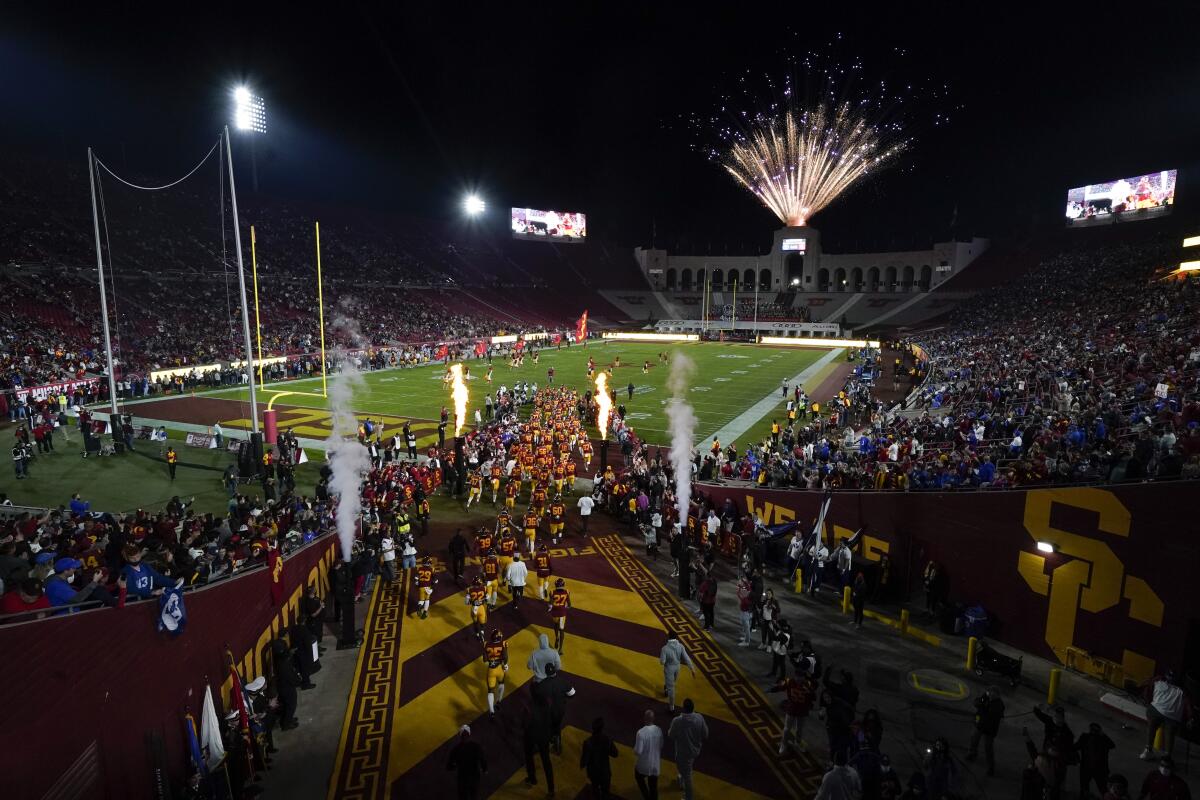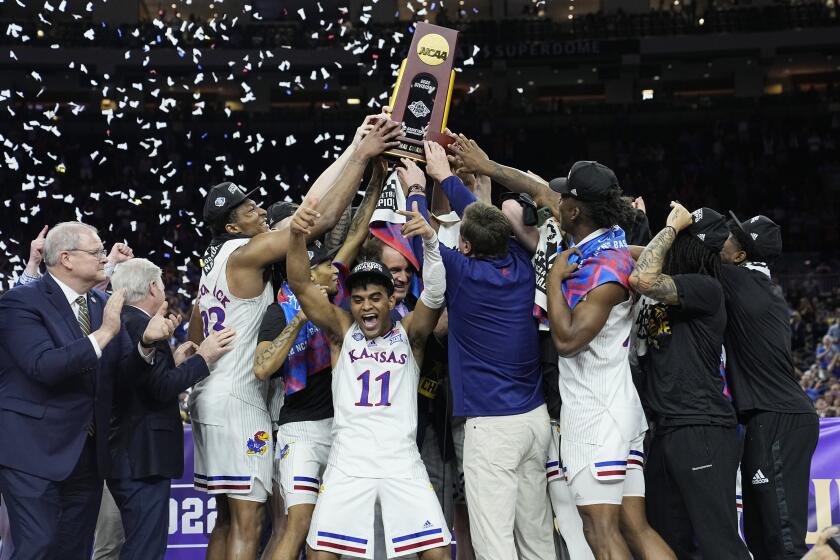USC’s answer to NIL? A new third-party agency facilitating deals

- Share via
Amid the ongoing arms race around name, image and likeness in college football, USC didn’t exactly burst out of the gates flaunting its NIL firepower. Even as the football program emerged as a central figure in the spring’s NIL drama, USC stayed on the sidelines as the race intensified elsewhere, with coaches quarreling, schools ceding influence to donor collectives and top recruits purportedly signing million-dollar deals.
USC still doesn’t intend to wade into those murky waters. It still doesn’t have a donor collective, much to the chagrin of its fans. But almost a year into this new NIL era, USC believes it took a major step forward on that front Wednesday, announcing a partnership with media company Stay Doubted that establishes a third-party agency, BLVD LLC, to represent USC athletes and help facilitate NIL deals on their behalf.
“There is simply nothing else like this in our sport,” USC football coach Lincoln Riley said.
USC won’t be dipping its toes into that pool, per se. The school won’t technically have any direct part in brokering those deals. Instead, all agreements will be struck between BLVD LLC and the USC athletes directly, allowing the school to sidestep any pay-for-play scrutiny.
Those agreements can’t be offered to prospective student-athletes, with whom brokering NIL deals would infringe upon NCAA rules and state law. But top recruits undoubtedly will be made aware of the NIL infrastructure that are available to them upon their arrival.
All USC athletes will have the opportunity to opt in to that NIL representation, and those agreements won’t preclude them from pursuing other outside NIL opportunities. The likes of quarterback Caleb Williams, who already has representation and a robust NIL portfolio, can expect to continue pushing forward with their NIL plans.
But for those who have been left out of the NIL world in its wild first year, USC’s plan is intended to help spread some of the wealth while also keeping the possibility of a donor-run collective at bay.
The partnership won’t stop deep-pocketed donors from some day starting a third-party collective, but USC is hopeful its approach can yield many of the same results of a collective — without the same risk of breaking NCAA rules.
“We have patiently studied the NIL environment both within our program and nationally to inform our decision-making,” USC athletic director Mike Bohn said in a statement. “We believe every student-athlete should have access to NIL support resources and currently only about 3% of our student-athletes have engaged professional service providers. We strive to support our student-athletes in all ways, including in the NIL space.”
Another potentially game-changing bill for college sports is on the move through the California legislature. Here’s how it could upend the collegiate model.
That could mean everything from setting up sponsorships to merchandising deals to membership subscriptions that would give USC fans exclusive access to NIL-related appearances, events and memorabilia — among other things — for which said athlete would then be compensated.
That’s a far cry from where the landscape stood last summer, just before the floodgates were opened on NIL. Nearly a year before that, USC launched BLVD Studios in partnership with creative agency J1S with the intent of helping athletes build their brands in “the media capital of college football.”
Those plans have had to evolve quickly, but many of the same pieces remain in place. For one, the founder of J1S, Michael Jones, also happens to be the CEO of Stay Doubted.
“Since the inception of NIL, the focus has been on establishing long-term sustainable structures that place student-athletes at the forefront of opportunities and industry-leading resources,” Jones said in a statement. “This arrangement achieves that and more. The economic power of Los Angeles is a differentiator that is hard to match.”
That advantage always has been intact. Now, as Riley put it, USC feels it has “an NIL program that will have no equal.”
Only time will tell if that’s the case. But nearly a year into the NIL era, USC finally has taken its first big swing.
More to Read
Go beyond the scoreboard
Get the latest on L.A.'s teams in the daily Sports Report newsletter.
You may occasionally receive promotional content from the Los Angeles Times.








